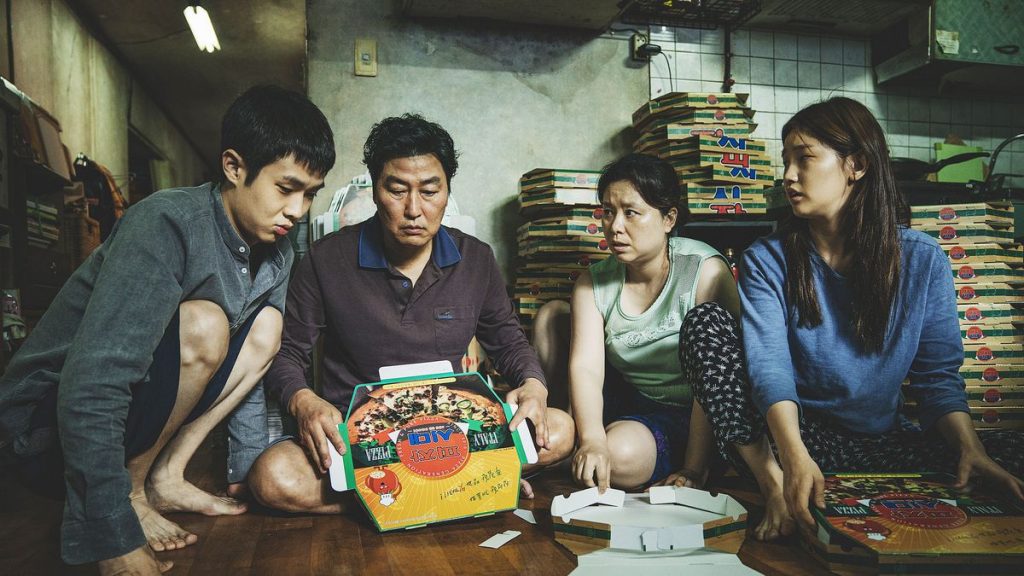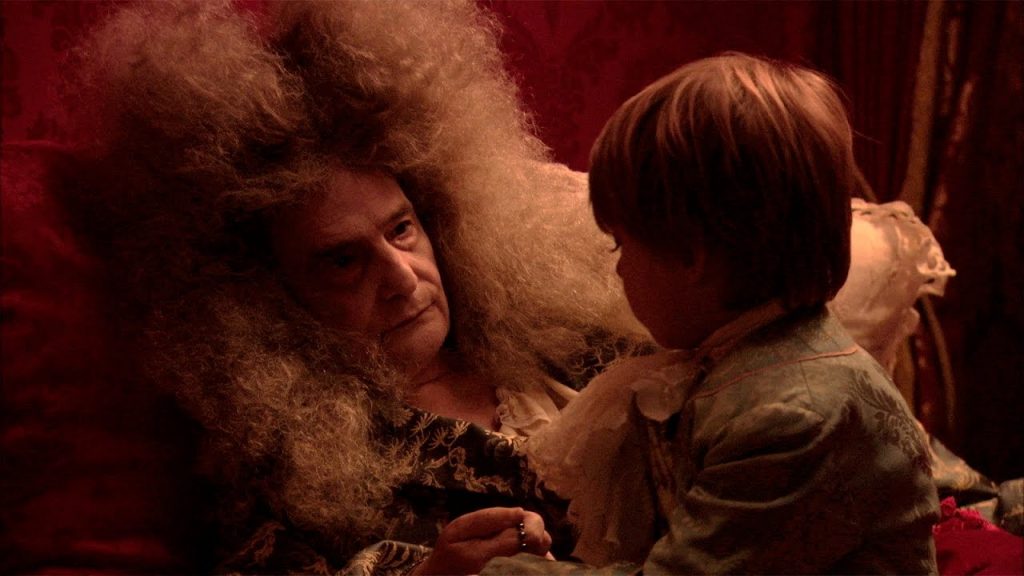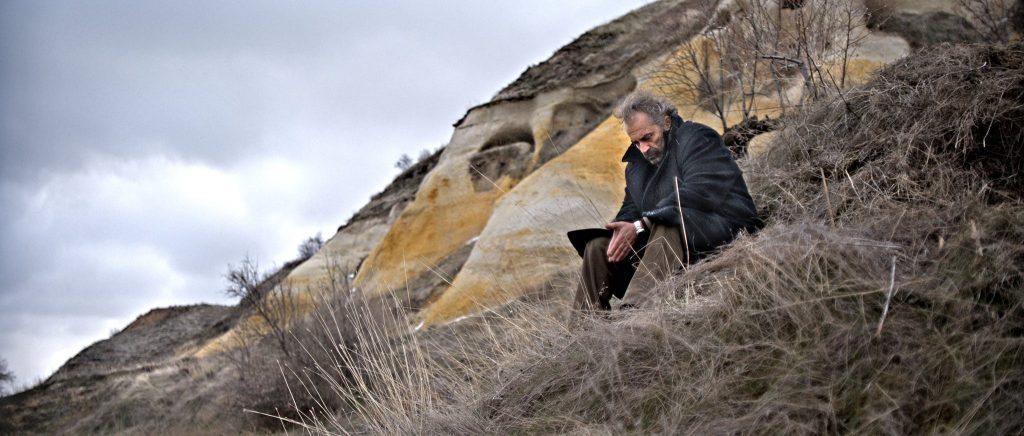Toujours Cannes à Bucarest – Film recommendations
Synonymes (dir. Nadav Lapid, Golden Bear at Berlinale, 2019)
“What are you going to do in France?” is asked Yoav (Tom Mercier), an Israeli immigrant who just settled in Paris. “I’m resting,” he replies with a fetid, arrogant air. Lapid’s film is a masquerade of the brave new world: Yoav breaks a generic Parisian apartment where he walks around naked and then takes a shower with cold water, goes into thermal shock and wakes up in the owners’ bed, covered by an extravagant fur, after they had carried his naked body and covered his penis with a cloth to shame him in front of the viewers. Coming in Paris to completely get rid of his nationality, after finishing the army in Israel, Yoav refuses to speak his native language. It’s as if, after the thermal shock, he is born a second time: he has to learn to walk and behave again. Yoav is given hipster clothes, shoes, shirts and a dictionary to cultivate himself. But, as he learns all the rules of “civilization”, he comes to behave like a savage. Apart from the extravagant trials the protagonist has to go through (a shooting for a porn movie, among other things, where he is asked to yell in Israeli whatever sounds rougher), Lapid shoots the outside sequences through the false subjective angle of the protagonist – a fish-eye lens that deglamorizes Paris, making it look dull and boring, even dirty. I couldn’t recommend Synonymes enough – even when it comes to topics that seem uninteresting, Lapid comes with an incredibly bizarre and current script, at the same time. Perhaps the problem is not that immigrants invade our countries, but that we have nothing human to offer.

The Autobiography of Nicolae Ceausescu (dir. Andrei Ujica, 2010; present in the section ROMANIA. 30 YEARS LATER)
Before I saw Ujica’s film, I had heard so many stories about Ceausescu (taught in History, read later, or through the tittle-tattle at every family Christmas meal) that I had strangely created an imaginary painting with different moments in the leader’s life. There were things I had never seen before – him in his royal toilet, hunting, eating profiterol – things that had settled in me since childhood. This film does the opposite: it tries to reconstruct the mythology that Ceausescu himself most likely had about him; the way he would have wanted the rest of the world to see him. It is probably one of the world-class masterpieces of found-footage cinema. And probably one of the last occasions to see it on the big screen.

Dolor y Gloria (dir. Pedro Almodovar, 2019, Best Actor Award and Best Soundtrack at Cannes)
Almodovar’s self-fiction was praised and appreciated almost unanimously – a film where Antonio Banderas plays the persona of a director who is burdened by both his own physical weaknesses (headaches, backaches, chronic cough) and the nostalgic imagery of his past (the relationship with his mother, the time when they lived for a while in a cave, where he taught a painter to write and read, while he prepared the walls). Banderas’s character has gray, wild hair (à la Almodovar), and a look that either explores the world around, or it takes refuge in self-agony. Although the film is less aesthetically spectacular (at times it seems like a TV movie sample), it relies on emotion and sincerity – what other director has revealed himself like this in front of the audience, all the more so when we talk about a misfit, Pedro Almodovar?

The Terrible Ivana (dir. Ivana Mladenovic, 2019)
Also in terms of self-fiction, I have an incredible curiosity to see what other spells Ivana Mladenovic has done (Soldiers. Story from Ferentari): with a title that quotes Ivan the Terrible, Eisenstein’s 1944 film, Ivana not only casts herself in the protagonist role, but she also casts her family. Soldiers has also addressed the distance you take when you play your own self – there, Adi Schiop reconstructed a personal life experience that he first fictionalized in writing, in the homonymous novel published a few years ago. Romanian cinema seems very anchored in this area at the moment. Both Mladenovic and Ana Lungu use the boundaries between fiction and documentary in their films; no wonder Soldiers and A Prince and a Half are among the most discussed and remarkable films of the past year.

Parasite (dir. Bong Joon-ho, 2019, winner of Palme d’Or in 2019)
A very poor family lives not only on the outskirts of the city, but in its basement, surrounded by rats. Aspiring to a life just like in the movies, they infiltrate another high-class family’s home, becoming its nemesis. The rich are naive and helpless – they are incapable of cooking for themselves, of educating their own children or of driving their car to work, so they do all these things for them, showing a disarming self-confidence.
Although at a meteoric distance, Viridiana and Parasite share a cynical view of the interference between the rich and the poor. The hyper-class house the protagonists of Parasite manage to enter by playing the teacher, the driver, the housekeeper and the therapist, and the mess they leave behind at the end has some of the recklessness of the beggars in Bunuel’s film when they abandon guilt and transform the solemn ”last supper” in a grotesque feast, tearing themselves up for a piece of bread. In a cynical way, in Parasite, although the low-class family dresses in ironed and tight uniforms, it has a specific odor of dampness that gives them away in front of the rich – it’s a kind of mark they flaunt around. A satirical comedy about the world we live in – where we use each other to succeed in life, as well as to simply live.

The Death of Louis XIV (dir. Albert Serra, 2016)
One of the special guests of this edition of Les Films is Albert Serra, an extremely edgy and inventive Spanish filmmaker. One of my favorites is undoubtedly The Death of Louis XIV, a film with the potential of becoming an agonizing classic – when I say agonizing I mean the unbearable length of the film (in parallel with the 2 actual hours, another 3 will be added, just like excessive temperatures of -20 degrees, when the body no longer has the notion of temperature). Jean-Pierre Laaud (yes, Antoine Doinel, the kid from Quatre-Cent-Coups) is the Sun King- infatuated and stubborn, wearing his bulky body on the royal bed while a foot injury gradually degrades his body and mind, leaving him unconscious and incoherent. The film takes place almost entirely in the king’s bedroom, so heads up to those who love the usual historical movies.

Winter Sleep (dir. Nuri Bilge Ceylan, 2014, Palme d’Or at Cannes 2014)
I would always watch Winter Sleep on a big screen, the magnum opus of Ceylan – for the dazzling soundtrack, as well as for the spectacular images of snow-covered Anatolia, landscapes that swallow the characters and make their personal dramas look small. The protagonist, a local businessman, a man with a loud voice – and apparently a heart as well – begins to lose them as soon as a stone hits his car windshield. Extremely well written and an excellent character study, I recommend it for multiple views – I am on the third one and I still find subtleties in the dialogue or in the actors’ performance that blow my mind.

Journalist and film critic, with a master's degree in film critics. Collaborates with Scena9, Acoperișul de Sticlă, FILM and FILM Menu magazines. For Films in Frame, she brings the monthly top of films and writes the monthly editorial Panorama, published on a Thursday. In her spare time, she retires in the woods where she pictures other possible lives and flying foxes.
